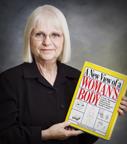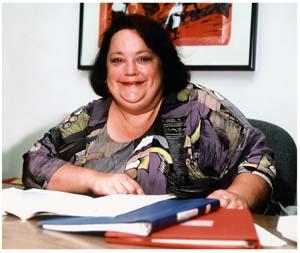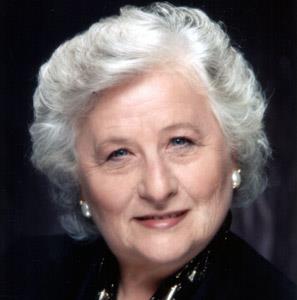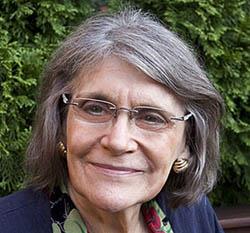The Women's Health Movement
You Have The Women's Health Movement To Thank If You:
- Know what a cervix is
- Own your own speculum
- Have been shown your cervix and vagina during a gynecological exam
- Have purchased an over-the-counter vaginal remedy or pregnancy test.
- Avoided an unnecessary hysterectomy
- Had natural childbirth
- Had your friend or partner present at the birth
- Avoided unnecessary intervention in childbirth
- Avoided cesarean section
- Given options on health treatment
- Have used donor insemination
- Considered or had a legal abortion
- Went in with your girlfriend for an exam, abortion or consultation
- Were given informed consent for the birth control pill or IUD
- Were offered a cervical cap as a birth control option
- Heard the health risks associated with breast implants, hormone replacement therapy, depo provera injections or norplant
- Given your choice of birth control
National Women’s Health Network
During the rise of feminist clinics, the National Women’s Health Network (NWHN) was founded and became a feminist watch dog of the FDA. View a short documentary film that follows the activism and progress in women's health advocacy. The video covers the NWHN’s impact on the safety of birth control pills, research on menopause hormone replacement therapy, andthe new health care reform law. Hear real stories of how the NWHN shook up Congress, Big Pharma, and complacent physicians by being the voice of women for change. Click here to view video…
The Women's Health Movement History
In 1971 a woman named Carol Downer used a speculum, a mirror and a flashlight, to look at her own cervix. She was the mother of six children and had never seen her own cervix. She saw where her babies had passed through, where her menstrual flow came from, and what the doctors had commented on over the years. It was a very enlightening moment for her. What she did with that knowledge was revolutionary. She was part of a woman's group, working to legalize abortion. She took her speculum to the next meeting and showed them her cervix. The group in turn took speculums to the California NOW conference and did "Self Help" for hundreds of women. Self Help groups became a place where women could see their cervixes, talk about their reproductive health care, and learn from each other's health experiences.
Carol and Lorraine Rothman took a bus across the United States sharing self help with a box of speculums marked "TOYS." This was the start of the women's self help movement, and the beginning of a power shift in women's health. Women wanted to control their own reproductive destiny, to be able to decide when they had children, and be informed decision makers about their health care.
They opened the first Feminist Women's Health Center in Los Angeles, California. They offered self-help groups for the community. The act of taking the speculum into our own hands prompted a raid of the first health center. The Los Angeles police raided the self-help clinic and Carol Downer was charged with practicing medicine without a license. A jury acquitted her.
When the Supreme Court handed down the 1973 Roe v. Wade decision legalizing abortion the self help group of mothers, housewives, clerical workers and activists started a clinic, hired doctors to perform the abortions, created woman-centered abortion care, and developed and promoted safer medical techniques that have raised the standard of abortion care nationally.
With encouragement, training and mentoring from the LA FWHC, woman-controlled clinics opened up across the country to provide respectful, reproductive care.
In Chico, in 1974, there were no abortion services available, no birth control unless you were married, adoptions were treated with suspicion and secrecy and the only women's health information you could get was from your male gynecologist.
With help, training and inspiration from the Oakland Feminist Women's Health Center, nine women formed a self-help group that grew into the Chico Feminist Women's Health Center (CFWHC), a private, non-profit woman-controlled clinic. The clinic was opened with no government or foundation funding and few resources. Motivated by their need, desire and drive to bring women-controlled reproductive health care to their community, the Health Center was started in less than a year. The group of field workers, waitresses, mothers and students pooled their income to pay women in the group to start answering phones. We were laywomen, running clinics and providing the kind of health care we wanted to receive.
Our original philosophy was to share information to give women control over their gynecological health, demystify and de-medicalize women's body functions as normal and provide true reproductive choices for all women. This has remained the guiding principle of the Feminist Women's Health Center/Women's Health Specialists. In addition to delivering services, we train people in and out of the medical profession. Women are trained to work in our clinic as health educators, doctors are trained in safe abortion techniques and nurses are trained to be non-judgmental practitioners in their approach to health care delivery.
Since 1975, we have grown to four clinics and have added many services. We expanded our services to Redding, California in 1982, Sacramento, California in 1987 and acquired our Santa Rosa clinic in 1988. In Redding we have had to rebuild our clinic from four arson fires. Our staff are on the front lines of women's reproductive health care.
Over the years we have traveled to: England, France, Germany, Switzerland, Cuba, Jamaica, Belize, New Zealand, Iran, China, Japan, Nicaragua, Puerto Rico, Mexico. We have shared self-help with women in every circumstance. In tents in Mexico showing public health workers, in a senate office in Washington DC for legislative aides, in churches, YWCA's, women's centers and clubs. In London we did self-help in a center run by Wages for Housework where prostitutes could come for services. After a trip to Germany, women in Berlin started their own health center, the Feminist Frauen Gezundheit Zentrum (http://www.ffgz.de/). They shared self-help and did diaphragm and Cervical Cap fittings in a building they squatted. In Nicaragua we attended the annual Medical Conference where we learned that death from illegal abortion was the number two death of women in the country (war was the first). We spoke at their conference, and then did self help with 200 Nicaraguan Nurses.
In Japan, women translated our books about self-help and formed their own self-help groups. Women from all over the world have visited our health center to learn about self-help and the woman-controlled self help model. National leaders from Guinea came to develop an advocacy program for the women of Guinea.
The Feminist Women's Health Center is a living symbol of women's freedom and self-determination. We continue to advocate, promote and protect reproductive rights for all women. Our philosophy of sharing information to give women control over their gynecological health and reproductive choices, and our absolute belief that women have the right to choose when, if, and under what circumstances they will have children, sets us apart from other abortion and women's health providers.
This article was written by Cindy Pearson, who is the Executive Director of National Women’s Health Network



